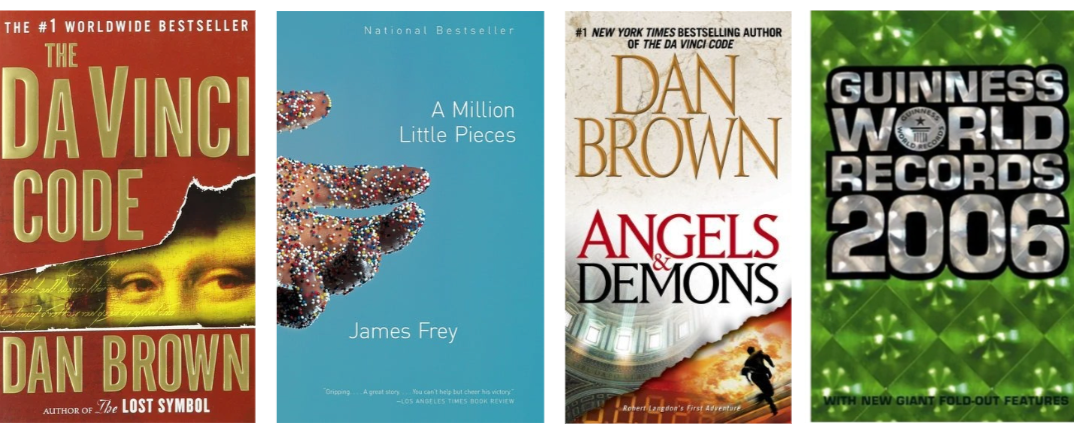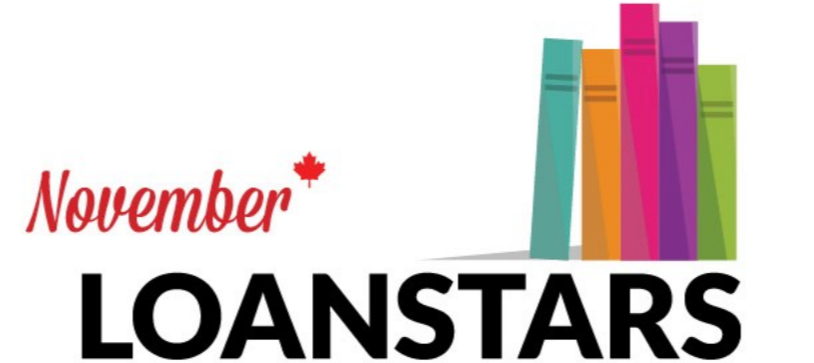It’s almost Halloween, which in the retail world is an indicator that by now you should have started (or you need to start) making a plan for the holiday season. True, this year things will look a bit different, but as usual, we’ve prepared a list of resources and data that we hope will help you achieve your bookselling goals.
Readers at a glance
If you’re subscribed to our Let’s Sell Some Books weekly newsletter for retailers, you know we’ve been releasing new data about readers, the intersection between library use and book buying, and the book market in general. If you’re not subscribed, here are some key things from those half-year updates that we think you should know:
The percentage of readers has increased from an average of 68% in 2019 to 72% in the first half of 2020.
60% of Canadian readers had read at least one print book in the last 12 months.
38% of readers discovered a book by browsing at a bookstore or retailer, either physically or digitally.
22% of Canadians bought at least one book in 2019.
18% of Canadian readers read daily, 20% several times a week, and 13% weekly.
Book buyers who visited the library at least once in the last month bought an average of 3.4 books which is more than what buyers who hadn't visited the library bought in the last month (2.6 books).
What to expect this holiday season
According to Think with Google, 80% of Canadian holiday shoppers made their purchases via three or more channels in 2019 and more than 50% of those reported purchases were made online. Though 2020 shopping might look different — 76% of Canadian shoppers said they expect to change the way they do holiday shopping according to this survey conducted by Field Agent. When asked about the ways it would change, they said they’ll be shopping more online, buying more gift cards, spending less time browsing, and using curbside pick-up options.
Regarding spending, according to Statista, Canadians spent an average of $1,337 on in-store holiday shopping in 2019. When asked about intended spending for 2020, 41% of respondents said they’re planning to spend the same as they did in 2019. An Ipsos study also found that 61% of consumers are being more mindful about the ways they spend their money when it comes to holiday shopping, especially due to the impact of COVID-19 on their finances.
Of note, not everyone will be shopping exclusively online, actually, only 7% of the respondents of the Field Agent survey said they don't plan to shop in-store at all, 22% are planning on visiting three retailers, and 18% are planning on visiting from six to 10 retailers.
Something that is changing though is that shoppers are carefully planning ahead for their shopping. Some things buyers are focusing on:
Supporting small businesses
Buying from businesses that offer contactless shopping
Using in-store or curbside pickup services when available
Learning about the policies put in place due to COVID-19 in the businesses where they hope to shop
Verifying that there’s enough stock of the item(s) they intend to buy
Now more than ever, customers want to have access to accurate, timely, and relevant information. To provide that, you need to split your holiday shopping season efforts online and offline.
Plan, review, sell!
Plan
You need a plan or maybe you have one in the works without even realizing it? Whatever the case, our blog series on bookselling and COVID-19 will be a good starting point. In this series, booksellers from different parts of Canada share insights about the initiatives and creative solutions they're implementing to keep their businesses rolling and their customers reading.
Now that you have a better sense of what your fellow booksellers have been doing during non-holiday-shopping times, it’s time to put on your thinking cap and thoughtfully plan for what's coming. Some of the key things you need to determine are:
Business hours
Will you be extending your hours to accommodate more patrons during the day and avoid crowds or maybe you’ll be shortening the in-store shopping hours to focus on online orders and delivery? Will you be moving your whole operation online? Which days will the store be closed?Fulfilling orders
Will you be offering delivery? If so, establish the zones to which you’ll deliver, the rates, the supplies needed for postage, etc. Consider alternatives such as curbside pick up, think about the procedures you’ll want your staff and customers to follow to keep everyone safe. Establish a clear workflow and communicate it to your team in advance.Returns and exchanges
Establish policies and procedures around returns and exchanges. A great source of information about the topic is this article from Canada Post. Think about fees, where does the fine print need to go — is it already on the website? Have you added this to your FAQs?Communicating and engaging with your customers
How will you be reaching out to customers? What channels will you use to keep patrons in the loop about the initiatives you’ll be implementing to boost sales (promotions, discounts, giveaways, etc.)? If you're a small business in which team members wear many hats, we recommend working on your marketing strategies and (perhaps even more time consuming) collateral in advance. When it comes to social media, don't limit yourself! Sometimes a picture of a nice display, a cool book cover, a video of a staff member recommending books is way more popular than a piece created by a graphic designer. Come up with a strategy, be genuine, and don’t forget that the whole purpose of social media is to connect with people and ultimately sell them wonderful books!Physical distancing policies
Do your research about the provincial and local guidelines you need to follow. Prepare signage for your bookstore, put up information on your website and social media about the rules customers need to follow — things like wearing a mask at all times while they’re buying books. Let customers know that you want to keep them and your staff safe.Inventory management
Book buying trends and topics of interest are constantly changing. In addition to bestseller lists, Google Trends can also be a handy tool to aid the ordering process. With this tool, you can check if people are searching for a specific term, author, or book; you can make comparisons over time and among different books or terms like the example below comparing Pride and Prejudice by Jane Austen and The Handmaid’s Tale by Margaret Atwood.
Think about the books you’ll need more units of, have a plan B for when sales uptick, see if your suppliers have any new initiatives to support bookstores.
Contingency plan
What happens if your website goes down? If in-store shopping can’t happen, what is plan B? If your most trusted supplier fails you, what’s the alternative to order from? Remember that at the end of the day, everyone involved in the supply chain will be doing their best to overcome the unprecedented challenges that the pandemic presents, having a few issues with shipping, delivery, and fulfilling of orders wouldn’t be a surprise.
These are only some of the things to keep in mind while planning for the holiday shopping season, an additional resource that can spark great ideas and help you prepare for the busiest time of the year is this checklist created by Shopify. It’s intended to prepare retailers for Black Friday and Cyber Monday but many of these points are also applicable to the broader holiday shopping period.
Review
Grab a coffee or tea, sit down and start reviewing all the information about your bookstore you have out there — by out there we mainly mean, on the internet, but if you have any printed material with outdated information this might also be a good time to find a better use for it.
Given the current circumstances, it’s very likely that changes need to be made to the way holiday shopping is done at your bookstore. Whether it’s changing business hours, offering curbside pickup, or any other strategy you plan to execute, make sure you review, update, and share all this information on your website and social media. Don't forget about re-reading the FAQ section on your website, shipping/returning policies, gift certificates section, contact information, etc. Think like a customer who wants to be informed, what things would you like to know before making a purchase?
Another source of information for book buyers in addition to your website and social media is Google Search and Google Maps, so make sure you review the information you have there or if you haven’t claimed your business profile yet do it now and take advantage of all the features Google has available, including specific ones that were added to help businesses overcome the effects of the pandemic.
Sell
Start selling! Engage with customers, train your staff to provide excellent service and increase the chances of seeing those customers return, refer you, or both. Is something working wonderfully? Is there an area that needs improvement? Go back to your plan, what did you miss? What can be done better? Check your inventory status, order more books if needed, and keep up the good work!
Resources
Was that a lot of information? Probably. Is it all important? Definitely. Are you alone on this one? No, you don't have to do this alone. There are many resources out there that can give you the tools and knowledge you need to tackle these challenges and find answers to your questions.
Whether you sell books online or exclusively in-store, these videos from Google will walk you through the process of acquiring a free report tailored to your business and industry, they also include tips on how to improve your presence in Google Search and Google Maps.
Instagram has been shifting towards e-commerce lately, and that’s something you can take advantage of, especially during this holiday shopping season. In this guide, you’ll learn how to set up your shop, what the marketing opportunities are, and more.
The Retail Council of Canada has also listed a wide number of resources on their website, and they also have an archive of the weekly independent bookseller’s bestseller lists.
Digital Main Street (DMS)
The province of Ontario in partnership with DMS is offering grants to main street businesses and small businesses to strengthen their digital plans. Click here to learn more.
Future Proof is a program that helps businesses pivot online or develop a strong digital presence. Learn more about their available program streams here.
DMS has also partnered with Google, Shopify, and other platforms to aid Canadian business owners, one of their programs is ShopHERE, a quick, easy, and free way to sell online. To get started visit shopHERE.
A number of how-to guides, tutorials, and tools are available on the DMS website, just click on the topic of your interest and get your learning going.
DMS also offers a wide range of free online training sessions, these are the ones we think you shouldn’t miss:
That’s all from us for now, for more BookNet Canada blog posts related to bookselling go here, to access our research reports go here. (Many of them are free!) And you can always reach out to us with your questions.
We hope you have a successful holiday shopping season!















The latest news out of the European Commission.